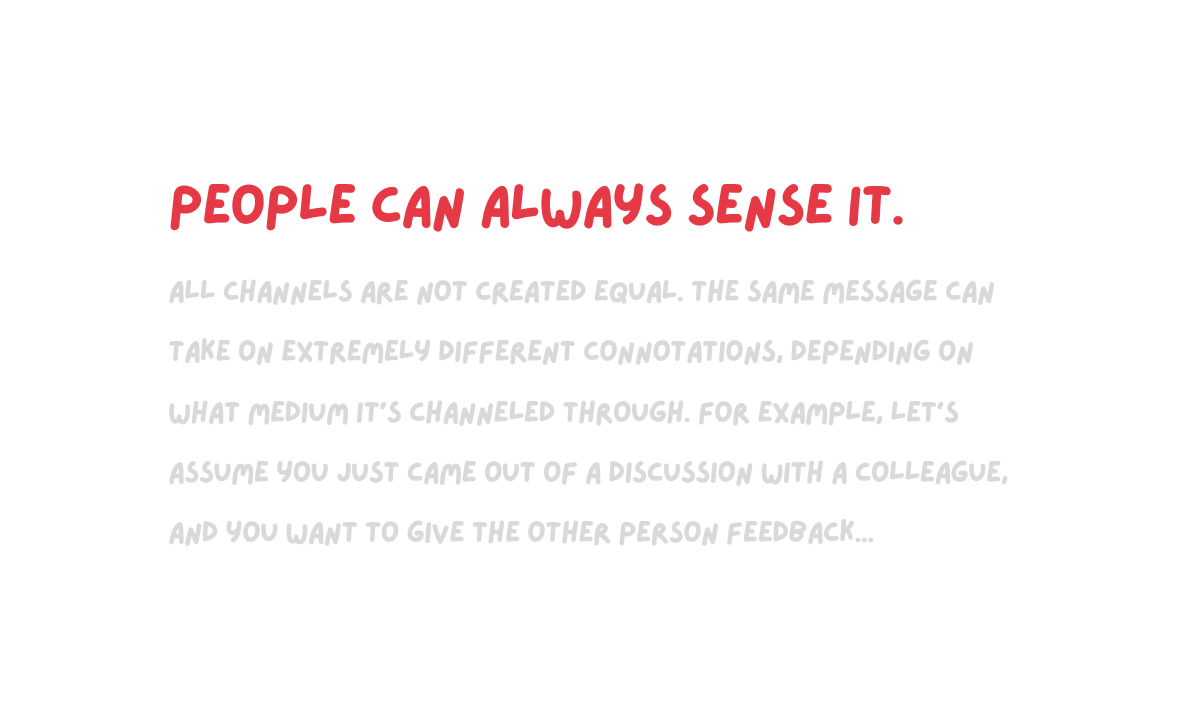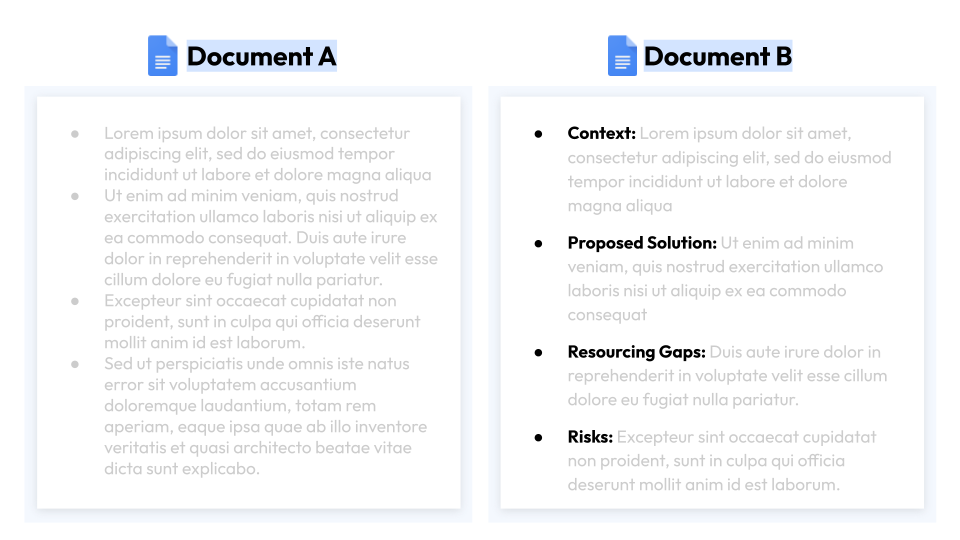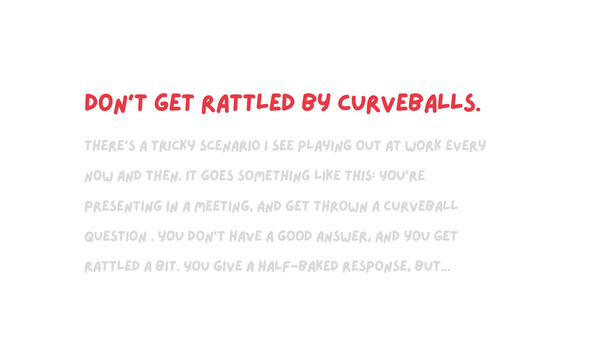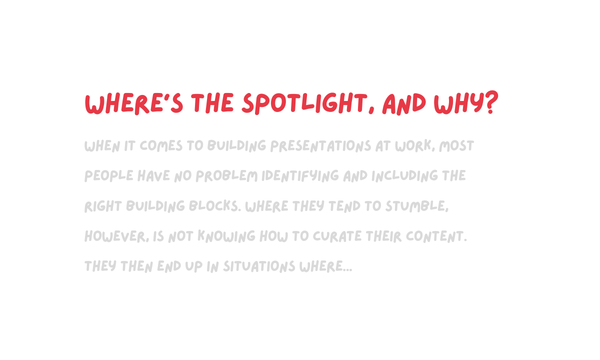What you signal can overshadow what you say

Imagine the following two scenarios at work:
Scenario A:
- You put together a business proposal, and send it to your manager
- Your manager drops in a meeting immediately for 1 hr later
- In that meeting, your manager asks you to change 5 things
- You address the feedback, and finalize the proposal
Scenario B:
- You put together a business proposal, and send it to your manager
- The next day, your manager writes 5 comments in the document
- You address the feedback, and finalize the proposal
What’s the difference?
Despite receiving the exact same feedback from your manager in both scenarios – your stress level is probably much higher in Scenario A.
Because in that scenario, you’re probably thinking:
- “Did I make a critical mistake? Why did my manager feel the need to pencil in such a last-minute meeting?”
- “Does my manager worry that I will misinterpret their written feedback, and therefore wants to meet live to ensure no ambiguity?”
- “Am I overthinking this? Maybe they simply think it’s easier to give feedback live, rather than spelling it out on paper.”
Why does this happen? Simple. It's because sometimes – what we signal speaks louder than our actual message.
And if you aren't intentional, you might find yourself creating confusion or unnecessary swirl for others. Things can backfire easily.
So what are these signals exactly? Here's a starter pack. Before you communicate something, ask yourself the following questions:
- "What medium am I using (and why)?"
- "How much mental tax am I creating?"
- "What past patterns am I breaking?"
- "What granularity am I focusing on?"
👋 Join 5000+ readers and subscribe to Herng's Newsletter for free:
▌#1 "What medium am I using?"
All channels are not created equal. The same message can take on extremely different connotations, depending on what medium it's channeled through.
For example, let's assume you just came out of a discussion with a colleague, and you want to give the other person feedback on something.
Do you:
- ...Send them feedback via a quick ping?
- ...Bring it up at your next weekly 1-on-1 meeting?
- ...Grab them quickly by their desk and share your thoughts?
- ...Set up a 5-minute catchup for later that day to give feedback?
- ...Write an email, describing what you think could've gone better?
You can deliver the exact same message in all instances; none of these approaches are necessarily wrong either.
But the signal you send will be wildly different.
Because on one extreme end of the spectrum (e.g. a quick ping, or a desk-side chat), you are likely signaling something to the effect of:
"This is not a big deal – I just wanted to bring it up while things are fresh."
While on the other extreme end of the spectrum (e.g. setting up a "formal" meeting, or writing an email), you are likely suggesting:
"This is serious enough to warrant some formal structure – and I hope you don't take my feedback too lightly either."
There's no right or wrong. What matters is whether your signal actually complements or reinforces your message.
Because if it doesn't? It derails what you're trying to say – sometimes even before they digest what you say.
When that happens: a healthy, constructive piece of feedback might end up escalating things unnecessarily. A well-intentioned suggestion might end up seeding distrust and stress.
And it's all because your audience is fixated on the signals you're sending – instead of taking your message at face value.
▌#2 "How much mental tax am I creating?"
Here's the thing to realize: people rarely evaluate your message on the message's merits alone.
Instead, they will constantly look for other signals to gauge the credibility of a message.
And sometimes? That can happen even before they actually read what you write. Because those clues are everywhere.
For example, consider the following two documents:

It should be immediately obvious that Document B comes off as more prepared, more polished, and... more credible, somehow.
But hold on – how is that fair? It's the exact same content, after all. In fact, if you look closely: Document A actually contains more details.
So how is it fair that we're (literally) judging a book by its cover?
Well, it's not. But it's the reality.
Because what you have to realize is this:
- Comprehension takes energy. The more mental tax you create for your audience, the more frustratation there is. And the more you alienate them.
- People are busy. They simply cannot dedicate equal attention to everything. It's only natural that they rely on cues and signals to weed out underbaked work – so they can focus on what seemingly deserves proper attention.
In fact, let me be even more explicit: if you aren't doing everything you can to make your work "easy" to comprehend for other people? Not only can people tell right away, but they'll actively start to wonder:
"Surely you must know that this work is far from polished? Is it because you don't see it as important enough to warrant extra effort? If so, should I spend extra energy trying to decipher this?"
Again, it's not always fair. In fact, it's a real shame when perfectly insightful content is viewed with prejudice or even kicked to the curbside – simply due to the fact that it requires more mental energy to digest.
But it's just the reality.
👋 Join 5000+ readers and subscribe to Herng's Newsletter for free:
▌#3 "What past patterns am I breaking?"
Remember that very first example we talked about, where your manager puts in a last-minute meeting with you to deliver feedback?
While the feedback they deliver could be completely innocuous and low-stakes – it simply doesn't feel that way. Instead, it comes off as highly ominous and distrusting.
Why is that? When you think about it, you'll realize that it's not necessarily because of the live meeting itself. After all, you meet your manager all the time.
Instead, it's the fact that this abrupt, last-minute meeting breaks patterns. Because your manager usually doesn't schedule last-minute meetings to give feedback.
And that act of pattern-breaking in and of itself sends a strong signal.
You're then left wondering:
"Why is she going out of her way to pencil in a sudden chat for simple feedback? Am I missing something? Is it more serious than I thought?"
And that can be highly counterproductive.
On the other hand, pattern-breaking is not always a bad thing. If you wield it properly, you can actually use it to your advantage and accentuate your message further.
For example, let's flip this around. Let's assume that you actually have serious feedback for someone, and you want to ensure that your message does not get taken lightly.
Imagine, then, if you did this:
- Schedule a proper standalone meeting (signal: this is not just casual, on-the-fly feedback)
- Send discussion notes in advance (signal: you care enough about this conversation to invest this effort)
- Deliver your feedback in a highly structured way, even if it comes off as slightly formal (signal: you're not just thinking on the fly)
Assuming that you do the above in a genuine way – you send a subtle yet strong signal that you are prepared and focused.
And that signal should help you land your eventual message even better.
▌#4 "What granularity am I focusing on?"
Again, imagine that our manager is giving us feedback on a business proposal we wrote – but that there are two different scenarios.
In Scenario A, our manager tells us the following:
- "On Slide 2 – change the header so that it says 'we estimate this initiative can drive up to $xxM upside by Year 3'"
- "On Slide 3 – highlight the 3 datapoints used for inputs, and write down each of the sources in the footnotes"
- "On Slide 4 – add a callout box on the righthand side, and write down the two risks we see in dark red"
Whereas in Scenario B, our manager tells us the following:
- "Our stakeholder is extremely data-driven, and we need to demonstrate extreme rigour when it comes to our analysis. Please make sure sure we anchor on quantitative outcomes whenever possible, and make it explicit whenever we're using assumptions throughout this deck."
What's the difference? The feedback given is technically the same – just of a different granularity.
However, for the person on the receiving end, the signals are completely different.
Because in Scenario A, we feel distrusted. The extremely prescriptive and tactical guidance takes away our autonomy. It leaves us wondering why we're being micromanaged.
That signal makes it hard to focus on anything else.
Meanwhile, in Scenario B, we feel much more empowered. Our manager has chosen to anchor on principles, rather than dictating our every step.
The signal is then clear: they trust our ability to translate principles into action. They trust our judgment.
That makes us much more motivated to take action.
Let me be clear – it's not that being overly granular or tactical is always bad. There are situations that call for extreme specificity – and that's OK.
But if you find yourself communicating this way more often than not?
Either something's not working – or you're unintentionally sending the wrong signals.
Quick Recap
People are wired to look out for signals and other non-verbal cues. They seldom evaluate a message at face value.
Therefore, before you communicate, make sure you're sending the right signals by asking yourself these questions:
- "What medium am I using (and why)?"
- "How much mental tax am I creating?"
- "What past patterns am I breaking?"
- "What granularity am I focusing on?"


